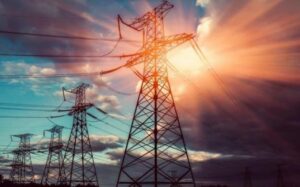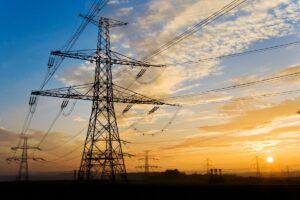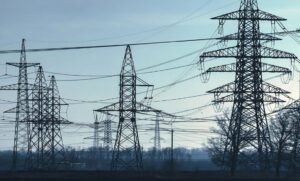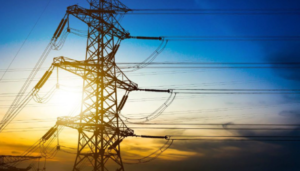
Carlsberg Ukraine’s Kyiv plant has installed 1.5 MW diesel generator and cogeneration units (DGU, CGU) to ensure a stable power supply and plans to install a 500 kW solar power plant and a 5 MW power storage facility with a capacity of 10 MWh by the end of the year, according to Roman Sapiga, head of the plant’s automation and electrical engineering group.
“Our enterprise must operate without interruption, so the uninterrupted operation of our power generation facilities is extremely important to us. We chose a 1.5 MW diesel generator and a 1.5 MW gas generator… They work together in an ‘island’ mode and are connected to each other,” he said at the EnergoTech-2026 conference, which took place recently in Kyiv.
Sapiga noted that generation is controlled by a special program, which is constantly being improved.
“Sitting at our workstations, we can see almost all elements of the generation system and can start them up. It is necessary to manage them correctly. Every time we encountered a problem, a new automatic solution appeared,” shared the representative of Carlsberg Ukraine.
According to him, the company also imports electricity, and the management program allows it to track consumption so as not to exceed the limits at which the consumer is not disconnected according to hourly schedules (for this, it must import 60% of its consumption – EP).
“There is a program that tracks the price of electricity for the next day and decides whether to start the CHP and at what time, comparing the market price of electricity with the cost of its production from gas. It worked very well in the summer and early autumn, but with mass blackouts, it doesn’t work,” Sapiga noted.
The Carlsberg Ukraine plant in Kyiv plans to diversify its electricity sources by 2026.
“We are planning a 500 kW solar power plant. We want an energy storage facility (ESF) with a capacity of 5 MW and 10 MWh. We are a large producer. 3 MW of CHP and DG do not even cover half of our consumption,” Sapiga said in a comment to ENERGOREFORM.
As he noted, they plan to look for an investor with whom they can conclude direct contracts for electricity before building the solar power plant.
In addition, Sapiga emphasized that the main reason for developing their own energy supply is not the price of electricity, but the instability of the grid, since under such conditions the plant cannot operate normally.
He named some of the main challenges for 2025 as almost 60 hours of operation on its own generation in the event of a complete grid shutdown, constant software changes, and a reduction in the duration of the transition of generating units to “island” mode from 1.5 hours to 15 minutes.
“My advice is to diversify generation and have a management system that takes into account all available sources, as well as choosing reliable contractors with a good track record. This is especially important for enterprises and businesses,” Sapiga concluded.
Carlsberg Ukraine is part of the Carlsberg Group, one of the world’s leading brewery groups with a large portfolio of beer and other beverage brands. Carlsberg Ukraine includes factories in Zaporizhia, Kyiv, and Lviv. Carlsberg’s portfolio in Ukraine includes beer, alcoholic and non-alcoholic beverages of such brands as Lvivske, Robert Doms, Baltika, Carlsberg, Tuborg, Kronenbourg 1664, Arsenal, Kvas Taras, Somersby, and others.
According to data from Opendatabot, Carlsberg Ukraine increased its revenue by 15.5% to UAH 12.488 billion in 2024, its net profit by 19.4% to UAH 2.18 billion, debt obligations by 34.9% to UAH 5.11 billion, and assets by 33.1% to UAH 13.84 billion. The company currently employs 1,310 people.

Electricity imports to Ukraine in January 2026 increased by 40% compared to December 2025 and amounted to 894.5 thousand MWh, according to the DIXI Group analytical center, citing data from Energy Map.
“This is the highest monthly figure since the launch of the new electricity market in July 2019,” the center said.
There were no electricity exports in January.
For comparison: in January 2025, electricity imports amounted to 183.1 thousand MWh, while exports amounted to 84.7 thousand MWh, according to statistics from DIXI Group.
In January, Hungary accounted for the largest share of imports – 45%, or 402.0 thousand MWh. Romania accounted for 21% of the resources provided to Ukraine (185.9 thousand MWh), Slovakia – 18% (159.8 thousand MWh), Poland – 15% (135.2 thousand MWh), and Moldova – 1% (11.6 thousand MWh).
The growth in imports from European countries ranged from 18% to 62%, with the exception of Moldova, from which supplies decreased by 18%.
According to DIXI Group analysts, in January 2026, the maximum capacity of inter-state crossings for electricity imports from the European Union to the joint Ukraine-Moldova regulation block increased to 2.45 thousand MW, which is a record since Ukraine joined the ENTSO-E network. At the same time, part of this capacity is used to import electricity to Moldova, so Ukraine has access to about 2.1 thousand MW of commercial imports. At the same time, the amount of permitted import capacity for each of the countries in the block is dynamic and may change depending on the operational situation in the countries’ power systems.
On average, during January, the use of available transmission capacity was 57.3% of the accepted nominal value (2.1 GW). The maximum level of utilization was recorded on January 24 between 16:00 and 17:00, at 104%, while the minimum was recorded on January 9 during the same time interval (19.9%).
“Thus, Ukraine ended January 2026 as a net importer of electricity, which was the fourth consecutive month that the country remained in this status and reflects the critical role of imports in maintaining the stability of the power system in the face of massive attacks and high seasonal consumption,” DIXI Group emphasized.
Analysts at the center recalled that during January, Ukraine’s energy system operated under increased load, and on January 16, a state of emergency was declared in the country’s energy sector. In January, Russia used more than 6,000 strike drones, about 5,500 guided aerial bombs, and 158 missiles of various types against Ukraine’s energy system and critical infrastructure. In total, Russia carried out six massive strikes during the month, damaging power generation facilities as well as electricity transmission and distribution networks. The attacks took place against the backdrop of significantly worsening weather conditions and lower air temperatures, which further increased the load on the system.
One of the factors contributing to the increase in electricity imports was the rise in price caps in the short-term market segments.
As reported, the National Commission for State Regulation of Energy and Public Utilities (NKREKP) at an extraordinary meeting on January 16, set the maximum price limit for electricity on the day-ahead market (DAM) and intraday market (IDM) at UAH 15,000/MWh for the entire day for the period from January 18 to March 31, 2026.
The NEURC made this decision after statements by First Deputy Prime Minister and Minister of Energy of Ukraine Denys Shmyhal regarding the government’s expectations from the regulator to review the maximum prices for electricity on the spot market and to equalize the day and night price caps in order to attract electricity imports throughout the day.
After the adoption of this decision, the BASE electricity price index for the Ukrainian DAM reached a record high of 13,232.96 UAH/MWh at the auction on January 22, which is 1.8 times higher than the average value of this indicator for the 20 days of January – 7,307.04 UAH/MWh.
According to ENTSOE data, in January 2026, Ukraine ranked first in terms of the average daily BASE price index on the DAM 14 times (January 2-4, 10-11, 16-17, 19, 21, 23-25, 27-28), compared to 26 European countries.
At the end of 2025, Ukraine ranked second among 27 European countries in terms of the BASE index on the DAM, which amounted to 5,292.62 UAH/MWh, calculated according to Central European Time (CET).

The record daily volume of electricity imports to Ukraine in January was 41.987 GWh, the Ministry of Energy reported on Sunday in Telegram.
“This support was made possible by the expansion of transmission capacity: in January, the power limit for imports from the EU was set at 2,450 MW, which is an absolute record since Ukraine joined the ENTSO-E network,” the ministry said.
It is noted that this helped to maintain the system and reduce the deficit amid Russian attacks and severe frosts.
As reported by Ukrainian President Volodymyr Zelenskyy, as of January 16, electricity consumption in Ukraine was 18 GW, while the capacity to provide it was “11 GW or so.”

On Monday, NEC Ukrenergo will restrict electricity supply in all regions of Ukraine.
“Tomorrow, January 26, hourly power cuts and power restrictions (for industrial consumers) will be applied in all regions of Ukraine,” Ukrenergo said in a statement on Telegram.
The reason for the restrictive measures is the consequences of Russian missile and drone attacks on energy facilities, the NEC notes.
The press service of NEC Ukrenergo reports that the situation in the energy system may change.

Naftogaz Group increased electricity imports from Europe this week based on a government decision and with the aim of stabilizing the situation in the energy system, said Sergey Koretsky, chairman of the board of Naftogaz of Ukraine.
“The volume of imported electricity already covers more than 50% of the needs of all the Group’s enterprises, as provided for by the government’s resolution,” he said in a Facebook post on Saturday.
Koretsky explained that the corresponding amount of electricity has been allocated for the needs of domestic consumers.
“We are coordinating our actions with the government in order to stabilize the situation in the energy system as quickly as possible after the Russian shelling,” the chairman of the board of Naftogaz emphasized.
As reported, amid the deteriorating situation in Ukraine’s energy system due to massive Russian shelling of energy infrastructure, the government has instructed state-owned companies to increase electricity imports.
During the “Question Time to the Government” in the Verkhovna Rada on January 16, First Deputy Prime Minister of Energy Denys Shmyhal pointed out that, on behalf of the government, Naftogaz of Ukraine, Ukrzaliznytsia, and part of the industrial complex will import at least 50% of their electricity needs.
“This will make it possible to free up 1.5 MW for people’s needs. I hope this will happen in the coming days,” Shmyhal said at the time.

Ukraine will be fully integrated into the EU energy market in 2027, even if we are not yet formally a member of the Union, said Deputy Prime Minister for European and Euro-Atlantic Integration of Ukraine Taras Kachka, according to a correspondent from Interfax-Ukraine.
“There is currently a large bill in parliament—several hundred pages on the final integration of Ukraine’s energy market with the EU. It is ready for its second reading, and I think we will be able to adopt it in February,” he said at the Ukrainian Breakfast in Davos on the sidelines of the World Economic Forum on Thursday, organized by the Victor Pinchuk Foundation.
According to Kachka, the document consists of hundreds of pages of technical assessments that experts have been working on for years.
“It is thanks to this work that in 2027 we will be fully integrated into the EU energy market, even if we are not yet formally a member of the Union,” the Deputy Prime Minister emphasized.
As reported, on July 22, the Verkhovna Rada adopted draft law No. 12087-d “On Amendments to Certain Laws of Ukraine Regarding the Implementation of European Law on Energy Market Integration, Improving Security of Supply and Competitiveness in the Energy Sector.” According to the Ministry of Energy, the relevant legislative proposal was developed on the basis of nine EU energy legislation acts and aims to create the necessary legislative framework for the full integration of Ukraine’s electricity market into the single European market on the principle of reciprocity.
The document provides, in particular, for the integration of the short-term (spot) electricity markets of Ukraine and the EU (market coupling) and balancing markets, which means increasing market liquidity, simplifying the conditions for trading electricity with the EU, making effective use of the transmission capacity of interconnections between countries, increasing the flexibility of the energy system, and providing access to EU reserves.
The draft law also provides for additional mechanisms to protect consumer rights and strengthen their role in the market by increasing the transparency of supply conditions and introducing tools for comparing suppliers’ offers, as well as creating conditions for consumers to participate in other market segments, in particular the ancillary services market.
The ministry noted that the adoption of the document as a whole will ensure the synchronization of electricity markets in early 2027.